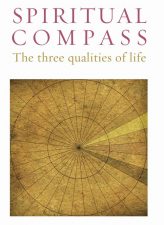You love reading books, and at the same time you care about the environment and don’t feel too good about all the trees cut down for printing these books. So what can you do to green up your reading?
There are several options for the eco-conscious reader who wants to act in support of the environment, and we are happy to share few of these ideas with you. One of our goals at Eco-Libris is to increase the awareness to the need in change in the book industry and we believe that readers can have a significant role in it. So here we go:
Join your local library.
My mother is a librarian for the last 27 years and I spent many hours as a kid and a grown up in the public library where she worked (you can still visit her at the library and say hi if you live in Rishon Letzion J). So you can imagine I am a big fan of public libraries, especially since a public library is not just a great cultural institute, but also a very eco-friendly place.
Public libraries are maximizing the usage of every printed copy and we need to remember that ‘reuse’ is a greener strategy than ‘recycle’. I don’t know the data about libraries in Israel, but according to the book “Seven Wonders for a Cool Planet” (recommended!), the average North American library lends out 100,000 books a year, but buys fewer than 5,000 books. Because less books are needed to be printed, the library is saving a huge amounts of CO2 emissions, or for those who are in favor of figures – 250 tones of greenhouse gas emissions every year.
Swap books with other avid readers.
Book swapping is a great concept: you get books you are looking for at no cost, give books others to enjoy and of course benefit the environment. It’s very similar to the idea of a library – maximizing the usage of every printed book minimizes the need to print new ones and saves many trees from being cut down.
You can start by swapping books with friends. If you already know their libraries too well, you can always join an online book swapping community, which is a great way to meet other readers and find the books you’re searching for. There are several online book swapping communities and many of them are pretty good. I would like to recommend BookMooch, a very cool book-swapping community, which is also partnering with Eco-Libris (BookMooch members can earn points by planting trees with Eco-Libris).
It has a user-friendly points system, where every time you give someone a book, you earn a point and can get any book you want from anyone else at BookMooch. Once you’ve read a book, you can keep it forever or put it back into BookMooch for someone else, as you wish. And yes, it’s totally free. You only pay for mailing your books. Sure, shipping is not very eco-friendly, but if you swap books with other Israeli moochers, it’s definitely an eco-friendly option.
Support Used Book Stores.
Again, it’s the same idea as with libraries: maximizing the usage of every printed copy. Don’t get me wrong – we’re not against new books, on the contrary. We just believe that if a copy is already printed, it should be used as much as possible and it’s better switching hands of avid readers than just lying still on someone’s shelf. And did we mention the cheaper price you pay for used books?
Support publishers and authors who print on recycled paper – it is important to show your support in publishers and authors that are going green and make the effort to decrease their footprint, by using recycled paper, vegetable based inks, no chlorine bleach, printing locally, etc. How you can show your support? In many ways. If you know of a specific green publisher or author, buy their books as gifts for example, recommend them to friends, ask your library to order them, write them an email to show them you care (a positive feedback is always energizing) and in general spread the word about these publishers and authors walks the green talk.
Insist on Green Publishing.
You can also put pressure on other publishers and authors that don’t go green yet and unfortunately are the majority. You can start with sending emails, letting them know about your concerns. Maybe if publishers will get enough emails from readers that care about the environment, they’ll reconsider the way they print books. Publishers should understand that going green is also good for their business and readers can play a significant role in it.
Use Eco-Libris – and of course I can’t avoid mentioning Eco-Libris that provides you with the opportunity to plant a tree for every book you read.
Eco-Libris partnered with three highly respected US and UK registered non-profit organizations that work in collaboration with local communities in developing countries to plant these trees. These trees are planted in high ecological and sustainable standards in Latin America (Nicaragua, Guatemala, Panama, Belize, Honduras) and Africa (Malawi), where deforestation is a crucial problem. Planting trees in these places not only helps to fight climate change and conserve soil and water, but also benefits many local people, for whom these trees offer many benefits, such as improvement of crops and additional food and income, and an opportunity for a better future.
In its first year of operation Eco-Libris balanced out 54,700 books, which results in 71,700 new trees that are being planted with our planting partners in developing countries. For more information on Eco-Libris, please visit its website in English or Hebrew (where you can receive our stickers in Hebrew!).
Are e-Books sustainable?
If you’re wondering why you don’t see here any recommendation to switch to e-books, the reason very simple – we don’t know yet for sure if they’re greener than paper-made books or not. Of course e-books don’t need paper and therefore no trees are cut down. They also don’t need transportation or physical storage and therefore no extra costs and extra footprint are required to bring the book from the publisher to the reader. Yet, other factors to be considered, especially with regards to e-book readers such as their production, materials used, energy required for the reader’s use, and how recyclable they are.
We’re lacking a full life-cycle assessment of reading e-books using kindle or other similar electronic book readers. Until we have that, we can’t really tell if and to what extent e-books are more environmentally-friendly in comparison to paper made books. I guess we’ll have to wait with this recommendation some time.
And one last clarification the trees we so much care about – most of these trees that are cut down for books are sourced from un-farmed sources (not to mention the fact that tree farms themselves have, in many cases, a devastating impact on native forests and indigenous communities).
Mandy Haggith, the author of the new book “Paper Trails” explained this issue to the Independent recently: “No one likes to think of trees being felled, but many of us have a cosy image in our heads that it all comes from recycling or “sustainable” woodlands growing in neat rows, perhaps somewhere in Sweden. It’s a myth. Globally, 70 per cent of the 335 million tons of paper the world uses each year comes from natural, un-farmed sources. In Canada, the UK’s biggest source of pulp, 90 per cent of its output comes directly from its ancient forests.”
Raz Godelnik is the co-founder and CEO of Eco-Libris.





I think he looks like Lex Luthor.
For English language book-swapping community in Israel, see anglobooks.com